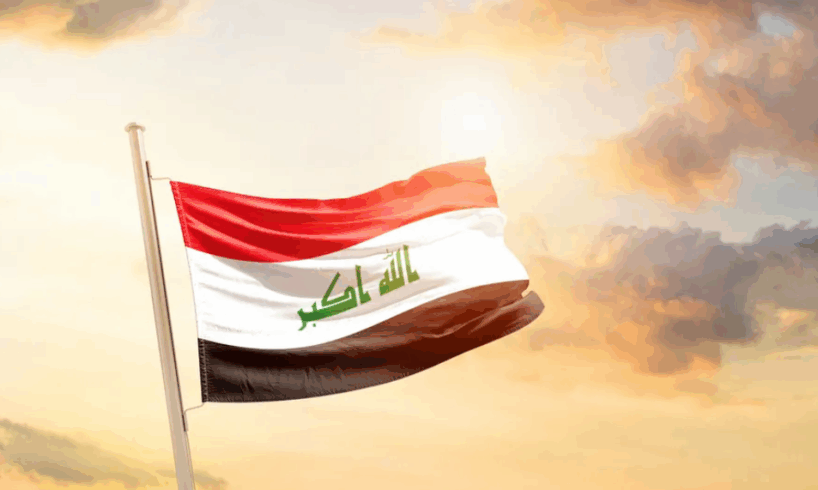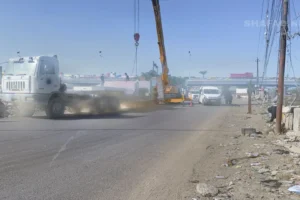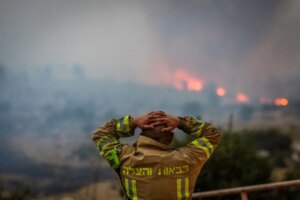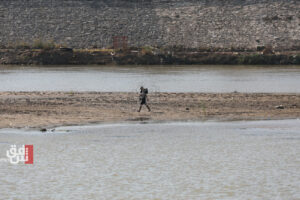
Shafaq News
Iraq stands at a precarious crossroads as
tensions between Iran and Israel spiral across the Middle East. While Lebanon
and Yemen have already been drawn into open clashes, Iraq’s position — hosting
US bases and the Iran-aligned Popular Mobilization Forces (PMF), a
state-recognized umbrella of mostly Shiite members— places it at the core of
any future escalation.
Observers warn that even if Baghdad tries to
remain neutral, the country risks being dragged into a conflict that could
shatter its fragile internal balance.
A Region on Edge
Recent Israeli strikes on Yemen killed the
head of the Houthi-led government in Sanaa. The attack marked a dramatic shift
in “rules of engagement” and prompted vows of retaliation. Yemeni political
figures such as Hamed al-Bukhaiti told Shafaq News that operations against
Israel will escalate in the coming days, from missile launches to the targeting
of shipping routes.
That vision was echoed by Yemen’s Brigadier
General Abed Mohammed al-Thawr, Deputy Head of the Houthi-affiliated Army’s
Moral Guidance Department, who warned foreign security companies operating in
Israel to leave, promising that future attacks would be “precise and harsh.”
Experts from Ramallah, Beirut, and Tehran all
describe the region as entering a “sensitive and dangerous phase” where war
could “erupt at any moment.” Israeli actions in southern Syria, ongoing strikes
in Lebanon despite a ceasefire, and growing hostility toward Egypt and Jordan
all point to a widening confrontation.
Iranian analyst Saeed Shawardi argued that
while “losses are inevitable in such wars,” resistance movements across the
region — from Hezbollah and Hamas to the PMF in Iraq — will not relent, framing
their struggle as existential.
According to Shawardi, the losses are less
severe than “submission, surrender, and the fragmentation of the region into
small states subservient to Israel. This is something Iran will not accept, as
it is preparing for a new war with Israel — though it will not initiate it, but
will defend itself against any aggression.”
Moscow-based analyst Asif Melhem of the JSM
Center added that these groups, though ideologically diverse, share the goal of
opposing Israel and defending Palestine, which makes Iraq’s potential
involvement “highly plausible.”
Iraq’s Critical Position
Unlike Lebanon or Yemen, Iraq has so far
escaped confrontation. Yet analysts stress that the country’s role within the
so-called “Axis of Resistance” makes neutrality nearly impossible if regional
escalation intensifies.
Melhem noted to Shafaq News that Iraq could
be “pulled in directly,” pointing to prior PMF participation in regional
operations against Israel. “The logic of unity of fronts makes Iraq vulnerable
to entanglement,” he said.
From Baghdad, security expert Ali al-Maamari
emphasized that Iraq faces a unique dilemma: “Factions are caught between the
US–Iraq strategic framework on one side and Iranian pressure on the other. With
many resistance leaders in the region eliminated, Iraqi factions face growing
pressure but also diminishing support from Tehran.”
Al-Maamari added that Prime Minister Mohammad
Shia al-Sudani’s government is unable to go beyond relaying Washington’s
warning — that any Iraqi faction attacking Israel or US interests will be met
with direct strikes.
Read more: Iraq after the Global Coalition: Between sovereignty and strategic risk
US Repositioning and the PMF Question
Washington has already begun reshaping its
footprint in Iraq. Unannounced withdrawals from Ain al-Asad and Victory Base,
with redeployments to Erbil and possibly Kuwait, are described by analysts as
tactical repositioning rather than full withdrawal. Shafaq News confirmed
through security sources that US forces will complete their exit from Ain
al-Asad by mid-September.
At the same time, US pressure has intensified
inside Iraq’s parliament to stall the PMF Authority Law. American officials
fear the bill would legitimize and empower factions closely tied to Tehran. For
pro-Iran leaders like Asaib Ahl al-Haq’s Qais al-Khazali and Kataib Hezbollah’s
Abu Ali al-Askari, such pressure is “political blackmail” that undermines
sovereignty.
The confrontation over the PMF law
illustrates Iraq’s central challenge: whether to integrate the PMF as a state
institution or treat it as a potential liability in a coming regional war.
Baghdad’s Balancing Act
Prime Minister al-Sudani has sought to
balance competing demands, warning that “any regional conflict will inevitably
touch Iraq.” But his space to maneuver is shrinking. Kurdish and Sunni blocs
view a stronger PMF as destabilizing, while Shiite factions threaten backlash if
Washington continues to interfere.
Analyst Ibrahim al-Sarraj told Shafaq News
that US troop repositioning “offers Baghdad symbolic gains in sovereignty” but
fails to resolve the core dilemma: Iraq remains both a host to US forces and a
hub for Iran’s regional allies. “That duality is unsustainable in a major war,”
he said.
Scenarios for Iraq
Observers outline to Shafaq News three
scenarios most relevant to Baghdad:
-Proxy escalation inside Iraq: PMF factions
step up attacks on US positions if Israel strikes Iran, dragging Iraq into
confrontation.
-Containment through US repositioning:
Washington’s redeployments and al-Sudani’s balancing succeed in limiting Iraq’s
exposure, though domestic tensions rise.
-Direct warfront in Iraq: If an Israel–Iran
war breaks out, Iraq becomes a major battlefield as both US forces and PMF
factions are targeted.
As EU foreign policy chief Josep Borrell
cautioned, “one wrong strike could close the narrow window that still exists
for de-escalation.” That warning resonates most in Baghdad, where analysts
agree Iraq has less room for error than any other front.
Iraq on the Edge of War
With Israel striking deep into Yemen,
Hezbollah bracing for renewed clashes in Lebanon, and Iran signaling readiness
for another confrontation, Iraq emerges as the most fragile link in a chain of
escalation. Unlike Lebanon, where conflict is largely confined to one border,
Iraq’s entanglement could trigger clashes across US bases, oil routes, and
sectarian fault lines.
Analysts warn that Iraq’s margin for
neutrality is vanishing. A single misstep — a PMF strike on US assets, an
Israeli preemptive attack on Iraqi soil, or unchecked Iranian pressure — could
ignite conflict across Iraq’s territory.
Written and edited by Shafaq News staff.





